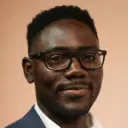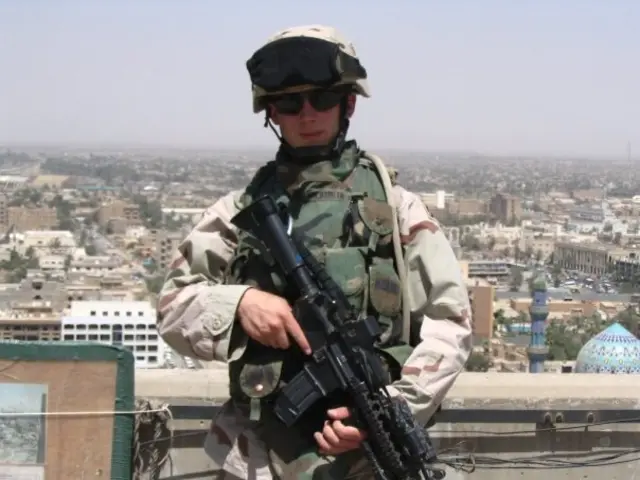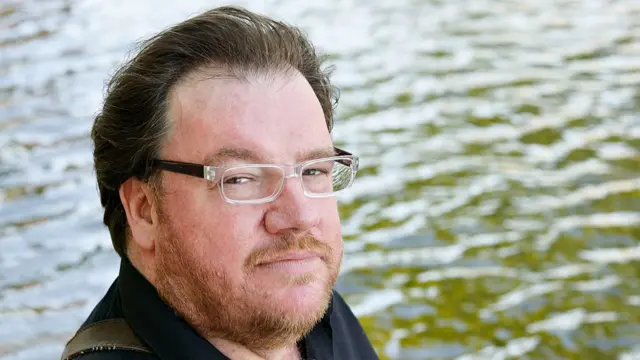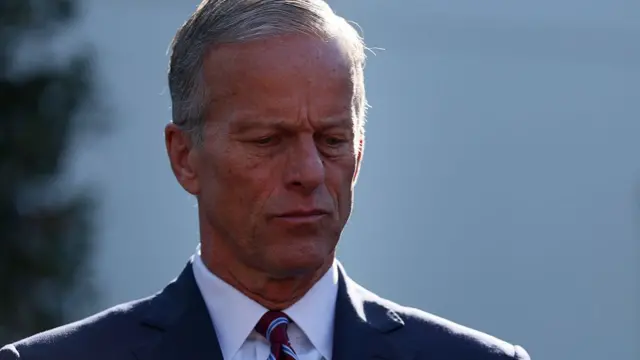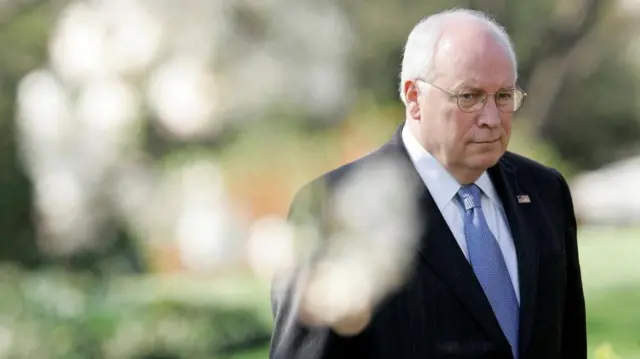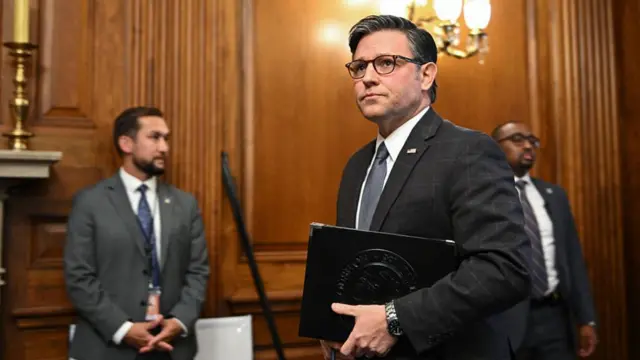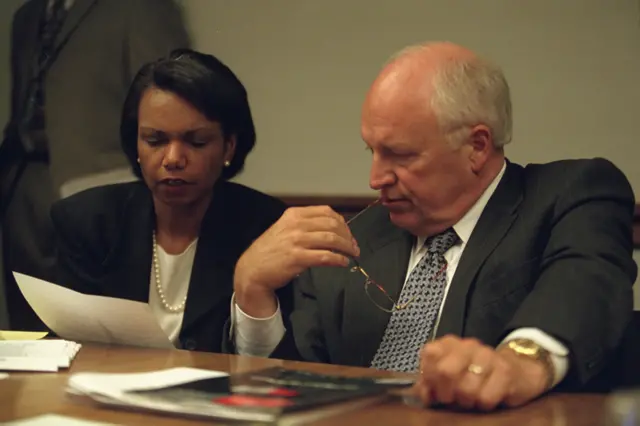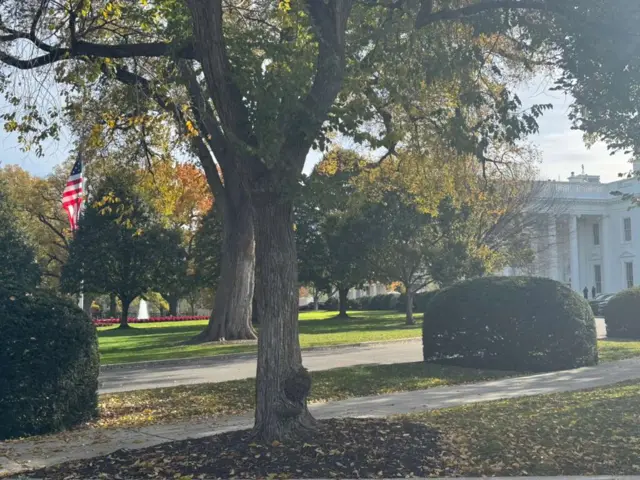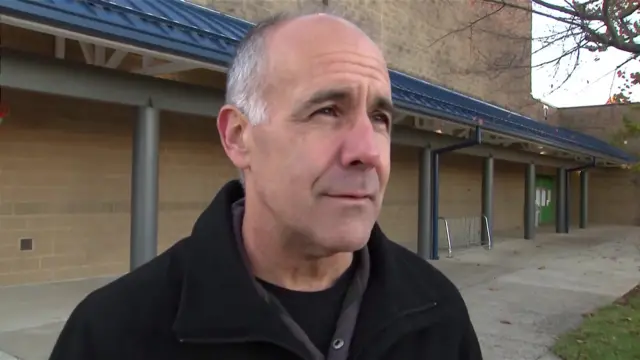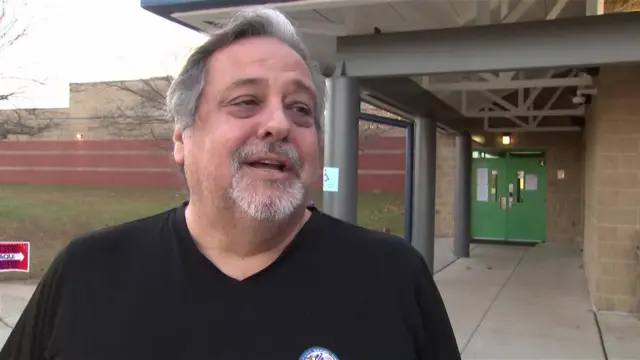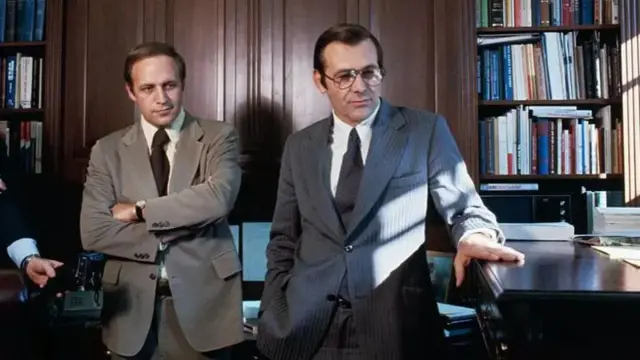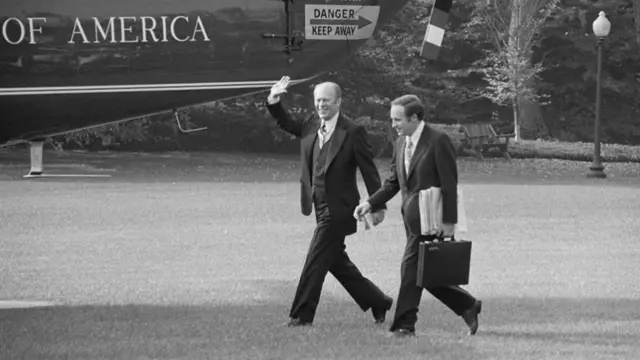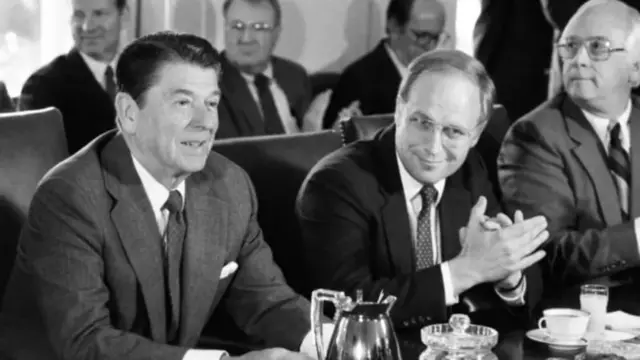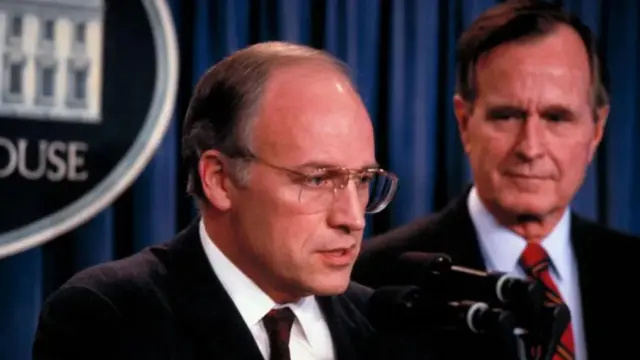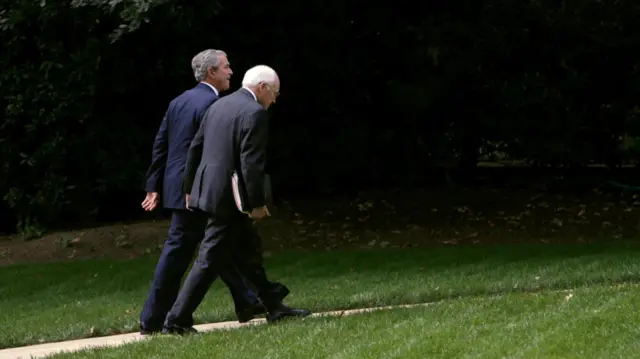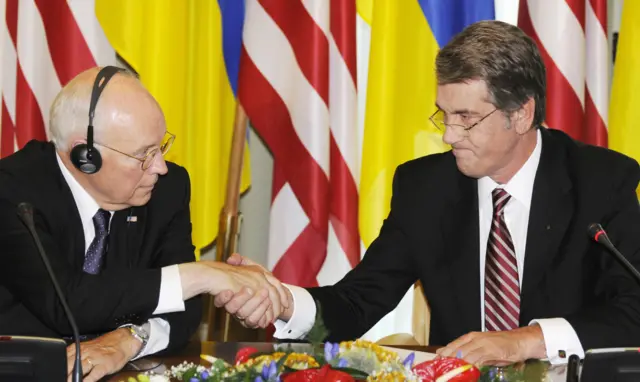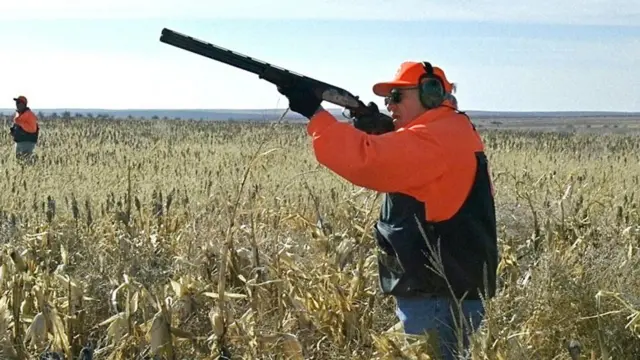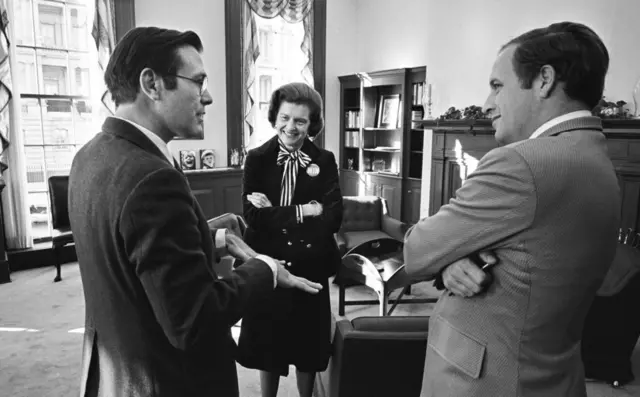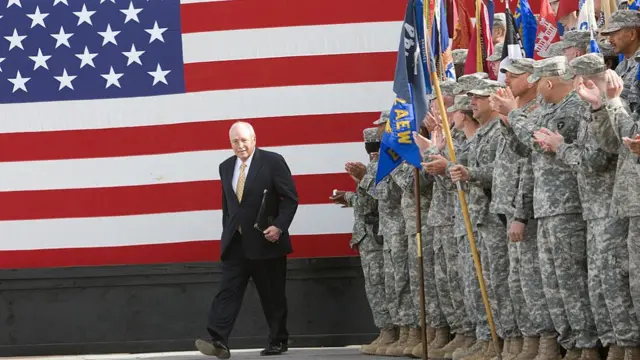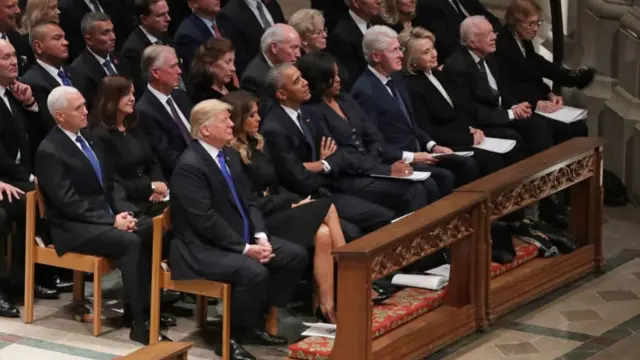
The 'forever war' Cheney championed may have propelled Trump to officepublished at 16:59 GMT
 John Sudworth
John Sudworth
North America Correspondent
Dick Cheney stood at the pinnacle of an era in Republican politics that now seems like ancient history.
The high-water mark of the neo-conservative movement came after the attacks on the Twin Towers with a response based on a massive projection of military might.
Tyrants would be felled, democracies bombed into being and the world made safer for Americans, or so the argument went.
With hindsight, even Cheney admitted that the invasion of Iraq had been based on a false prospectus - there were no weapons of mass destruction.
And yet he continued to justify the policies of that era - an extraordinary attack, he argued, had demanded an extraordinary response.
But as public weariness grew over the ongoing conflicts - with little clear peace-dividend to show - even the American right began to question the almost two decades-long cost in both blood and treasure.
Fast forward today and it is with even more venom than their counterparts on the left that Trumpian politicians now rage against the ideals of neo-conservatism.
In later life, Dick Cheney may have become one of Donald Trump's fiercest critics.
But is no small irony that the "forever war" he helped to start, in part at least, helped to propel the "America-first" president into office.
We're ending our live coverage for now. Thanks for joining us.
